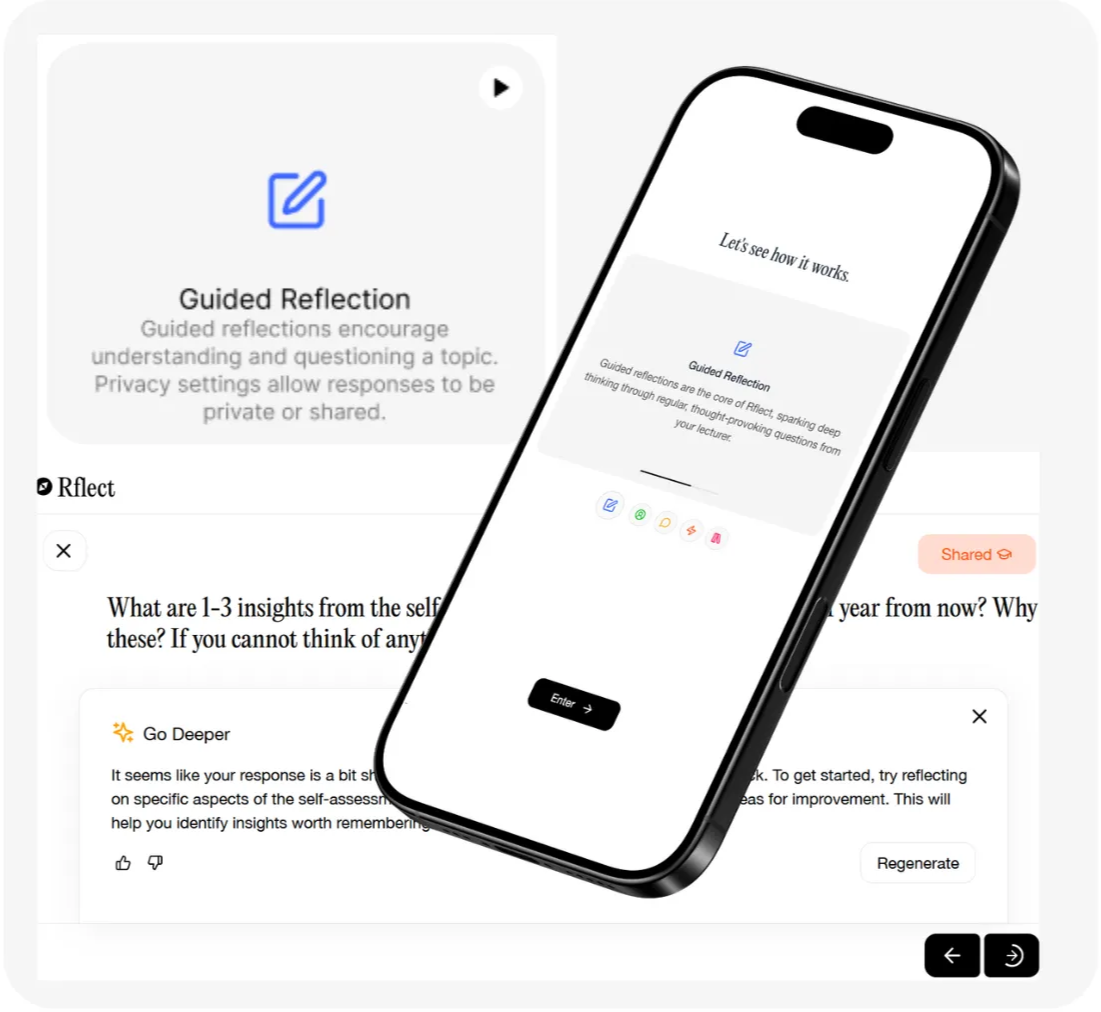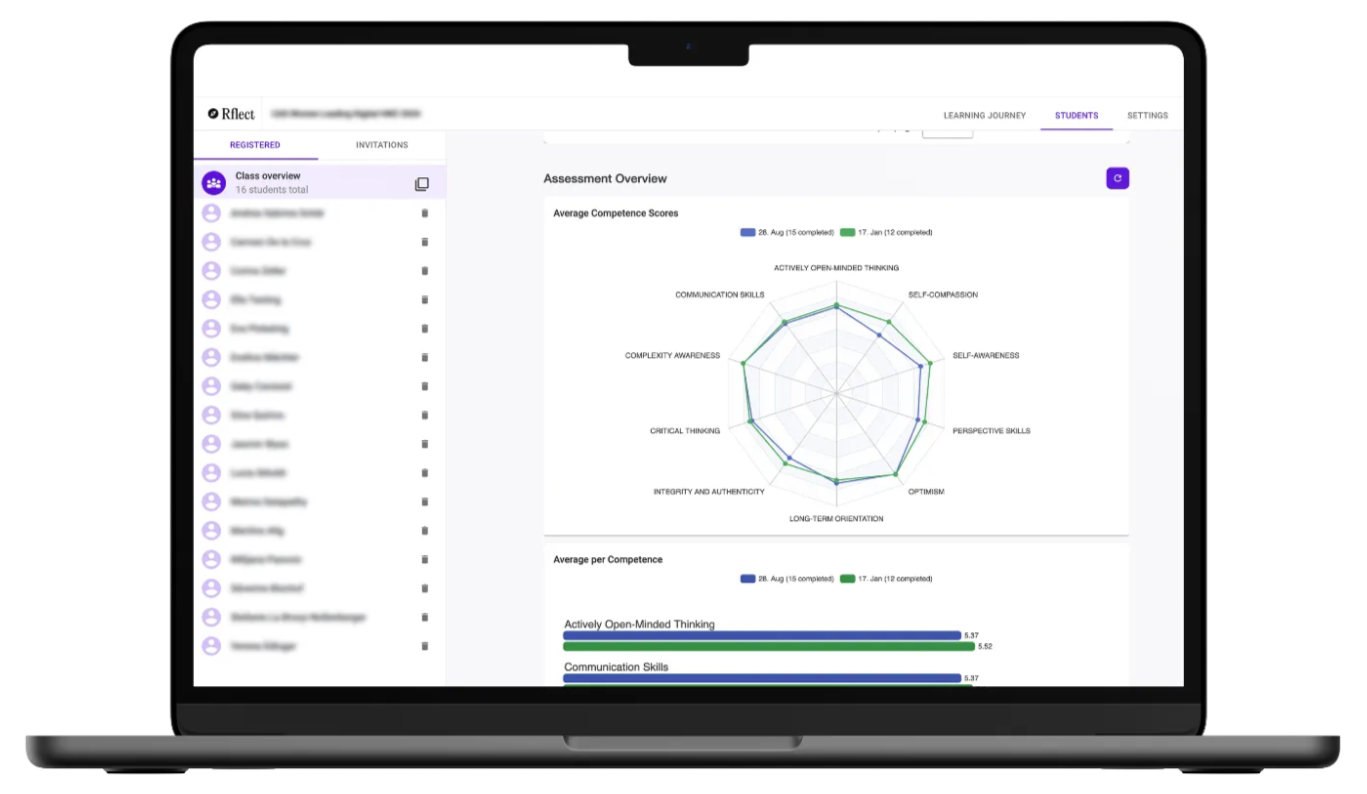Beyond E-Portfolios - The Future of Reflection Is Personal, Purposeful, and Ongoing
For years, e-portfolios have been a popular tool in education, designed to help students reflect on their learning, showcase their progress, and present a record of achievement. At their best, they served as structured, organized spaces to store skill development and academic output.
But as education evolves and the emphasis on student-centered learning deepens, a question arises: Are traditional e-portfolios still doing the job? Or are they simply digital checklists, more about control than authentic growth?
What Works (and Doesn’t) in E-Portfolios
E-portfolios have their strengths. They encourage documentation, organization, and a form of reflection. Students can collect their work, track progress, and even reuse content for future applications. In structured environments, they can support learning accountability.
But too often, they become performative. The pressure to “present well” means students may polish, exaggerate, or frame their experiences to fit expectations. The process becomes more about submission than self-awareness. Once uploaded, reflections are rarely revisited—and growth becomes a one-time snapshot rather than a continuous process.
Most importantly, e-portfolios are usually lecturer driven. They are created as tools to provide oversight, to check whether students have completed the work needed to pass a course, rather than as tools students actively use for their own learning. Picture this: a bookshelf in the basement where students are asked to place the things they’ve created, along with a few notebooks containing reflections written at the time. A lecturer can come by, see that everything is there, and approve the student’s progress. But how often do we, as learners, go back down to that basement to revisit those reflections? Most are written to fulfil a requirement and are never looked at again.
Rflect: A new Approach to an old Challenge
“We don’t learn from experience, we learn from reflecting on experience.” John Dewey
The challenge e-portfolio tools address is real: students have many experiences they fail to learn from because they do not make the effort to engage in meta-reflection.
Rflect recognizes this challenge, but approaches it differently. Rflect approaches reflection as a habit, not a hand-in. Instead of static uploads, students engage in short, guided reflections throughout their learning journey—timed to moments that matter. The focus is not on proving achievement but on gaining insight, noticing change, and building self-awareness over time. Rflect becomes a home for their learning process - student-owned, personalized, evolving with them, and supported by smart nudges and structure through AI.

Supporting Student-Centered Education
Rflect aligns seamlessly with the shift from curriculum-centered education, e.g. the portfolio-approach, to student-centered learning. It moves away from generic tasks and instead invites the learner to explore:
- their actual experiences and emotions
- the impact of their learning beyond the classroom
- their evolving goals, strengths, and identity
In short, Rflect doesn’t ask for “what you did.” It helps you figure out who you are becoming—and how you want to shape that path. And gives you as a student a companion to go down this path.

Comparing E-Portfolios and Rflect
While both e-portfolios and Rflect aim to support student learning, their approaches reflect fundamentally different beliefs about how reflection should work in education. This side-by-side overview captures the underlying principles that shape each tool:
| Aspect | E-Portfolios | Rflect |
|---|---|---|
| Purpose | Show progress and outcomes | Support continuous, personal reflection |
| Ownership | Led by lecturers and grading needs | Curated by lectures, led by students based on their own growth |
| Reflection Style | Retrospective and polished | Timely, authentic, and action-oriented |
| Usage Pattern | Submitted at fixed points | Continues, habitual usage |
| Structure | Organised for showcasing and assessment | Designed for development and insight |
| Revisiting Past Learning | Seldom revisited after submission | Encourages return and ongoing reflection |
| Educational Model | Focused on curriculum and outcomes | Focused on the learner and their journey |
The Disruptions Facing Higher Education Mandate a Real Shift
With knowledge being available essentially for free, 24/7, higher education has to adapt to meet students’ needs.
In many ways, e-portfolios walked so reflection could run. What once felt innovative has become routine: a structured archive, curated more for compliance than curiosity.
Rflect isn’t an upgrade, it paves the way for a shift to our AI-age. It doesn’t ask students to document what they’ve done—it invites them to take ownership of the journey to discover who they’re becoming. It doesn’t measure polish; it cultivates presence, purpose, and growth.
This isn’t about refining an old system. It’s about starting something new. Something real.
A tool built for honest reflection.
A space where learning feels personal.
A habit that begins with self, not submission.
Reflection isn’t a checkbox anymore. With Rflect, it becomes a compass.
